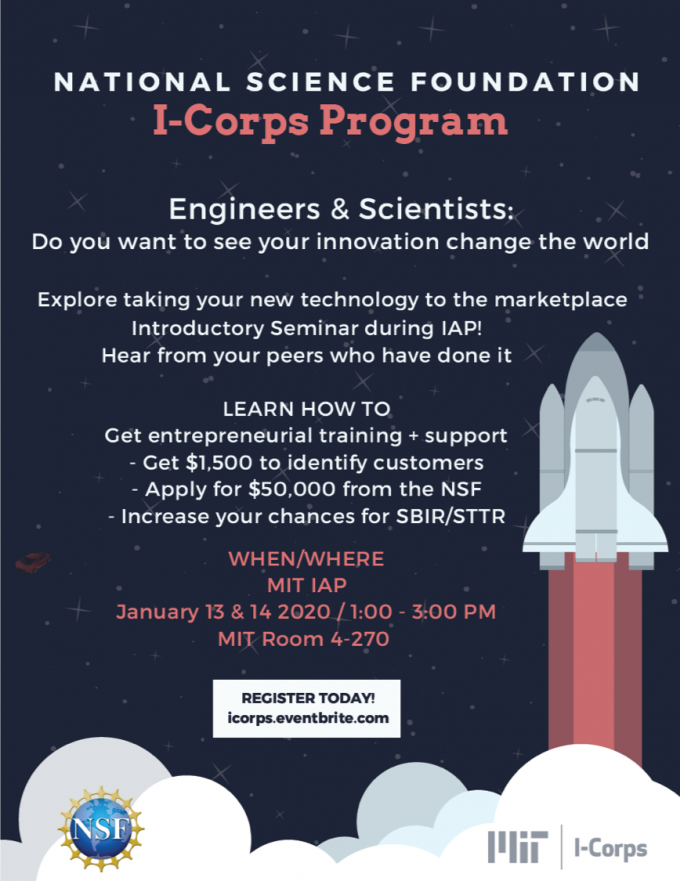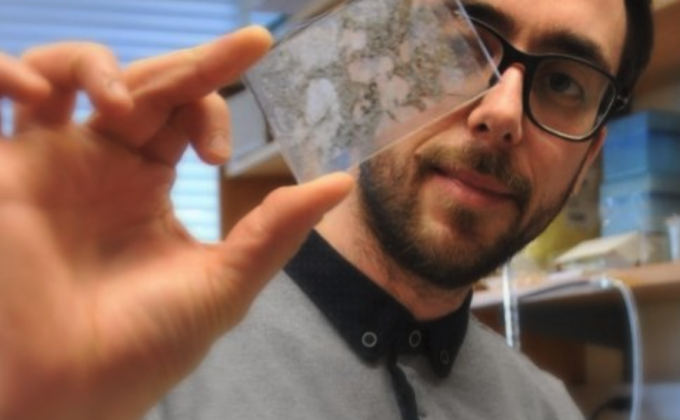Description
For graduate students, postdocs, research staff and faculty
This IAP event is two sessions:
Monday January 13th from 1-3pm & Tuesday January 14th from 1-3pm
When you register, you are registering for both days.
This seminar is designed to help engineers and scientists understand how they can:
- Explore taking your new technology to the marketplace
- Get entrepreneurial training, support, and up to $1,500 for customer discovery
- Learn how to apply for $50,000 from the NSF
- Increase your chances of receiving an SBIR/STTR award
What: The National Science Foundation’s (NSF) Innovation Corps (I-Corps) program prepares scientists and engineers to extend their focus beyond the laboratory to accelerate the transfer of cutting-edge research into commercial success.
Who: Whether you are just curious about the innovation process or certain you want to create a startup, I-Corps provides research faculty, staff and students with the ideal entry point.
Why: Understand how you can learn why your technology has value, and to whom, while gaining an appreciation for what it takes to commercialize technology and the barriers to adoption. Develop a network of like-minded peers, instructors, investors, and mentors.
Session 1. I-Corps: introduction and benefits
This session will give an introduction to NSFs I-Corps program and the ways it is useful to scientists and engineers who may be interested in commercializing their research. In addition to two interactive lectures, there will be a panel of former I-Corps participants from MIT discussing how the program has helped them, including getting SBIRs, and answering questions.
Session 2. The Customer Discovery Process
This session explores the I-Corps process via short and interactive lectures covering aspects of why I-Corps works and howgoing through the program increases the chance of auccess for future SBIR grants. An Introduction on how to do customer discovery, refining value propositions, determining a minimum viable product will be covered. Learn how to get a $1,500 grant to get started and how to get $50,000 more from the NSF.
REGISTER


